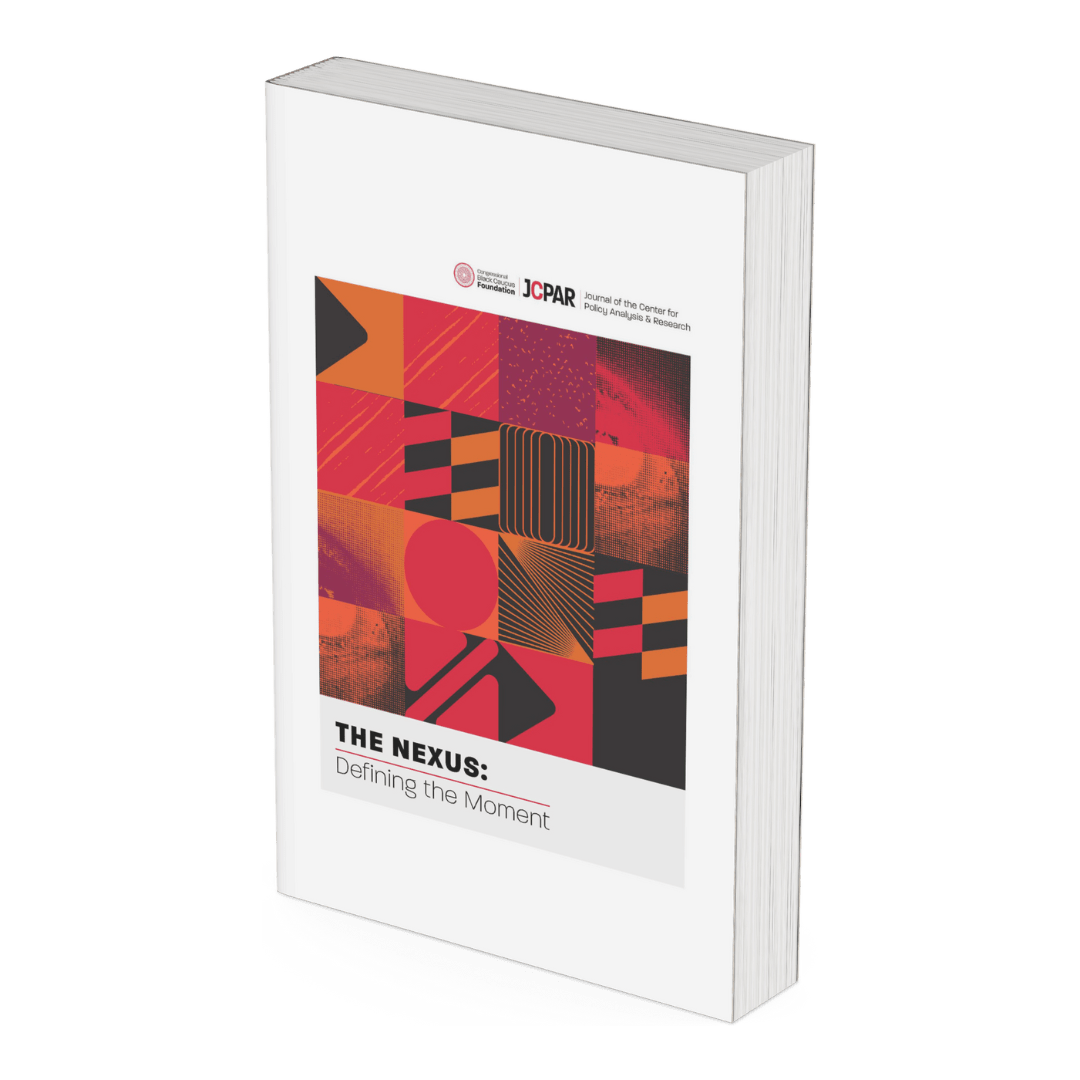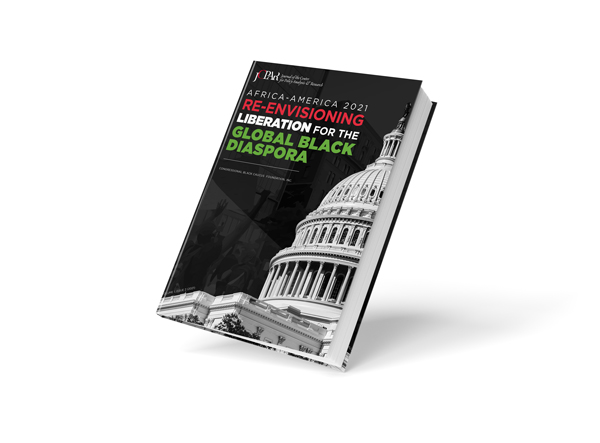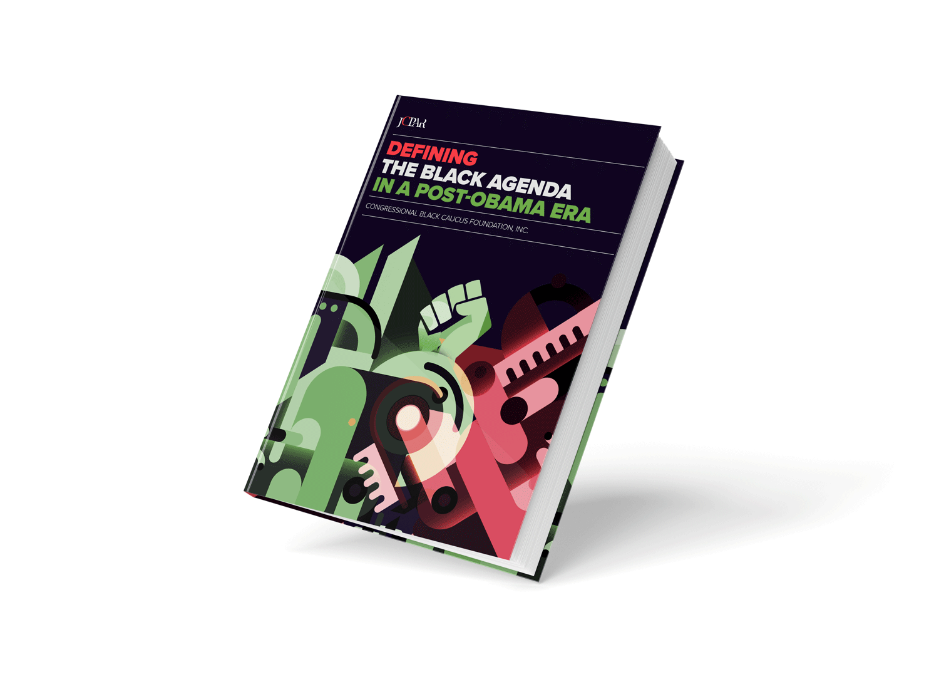The Journal of the Center for Policy Analysis and Research
The Nexus: Defining the Moment
History tells us that the Black liberation movement thrives at the “nexus” moments where progress clashes with opposition, sparking pivotal advancements. This special issue of the Journal of the Center for Policy Analysis and Research serves as a time capsule capturing the fluctuations of the past five years in Black social, political, and economic life.

Africa-America 2021: Re-Envisioning Liberation for the Global Black Diaspora
Written by scholars and practitioners for a general, non-specialist audience, the Journal of the Center for Policy Analysis and Research (JCPAR) follows the standard of a peer-reviewed, social science publication and serves as a conduit between research and policy. With just over 10 entries, this issue has a special focus on topics including in-depth and innovative approaches to help advance the study of Black identities, ethnicities and diasporas, and in turn, highlights how these perspectives inform representative governance and public policy.

Defining the Black Agenda in a Post-Obama Era
The inaugural issue of the Journal of Center for Policy Analysis and Research entitled, “Defining the Black Agenda in a Post-Obama Era” has a special focus on advancing the collective Black agenda and the significance of the Congressional Black Caucus. This journal provides a platform for thought leaders, practitioners, researchers, and policy experts from across the nation to contribute to research and policy.

Scope
 The Journal of the Center for Policy Analysis and Research is a multidisciplinary journal, released every two years, that publishes original research and analyses on public policy issues related to Black politics in the U.S. and abroad.
The Journal of the Center for Policy Analysis and Research is a multidisciplinary journal, released every two years, that publishes original research and analyses on public policy issues related to Black politics in the U.S. and abroad.
Our principal aim is to foster dialogue between the academic and applied fields in order to better inform policy, programs, and practice. We seek to establish a productive and intellectually stimulating space where substantive research on legislation and political processes is produced, argued, and publicly discussed by a broad range of contributors, from economics, political science, sociology, anthropology, law, media studies, feminist studies, LGBT and sexuality studies, geography, public policy, history, and other related disciplines.
All journal contributions are peer reviewed and follow the standards of rigorous scholarship and sound analysis, with quantitative and qualitative studies on the social impact of policy receiving special preference and consideration. The journal prioritizes writing that is jargon-free and accessible to an audience of non-experts who seek to engage with academic research and methodologies. With this objective in mind, authors should take care to address a readership outside their respective disciplines.
Furthermore, the editors are especially committed to cultivating a forum for early-career professionals, with or without advanced degrees, whose studies have direct policy implications for programs and strategies at various levels of government and civil society that affect Black and minority communities.











